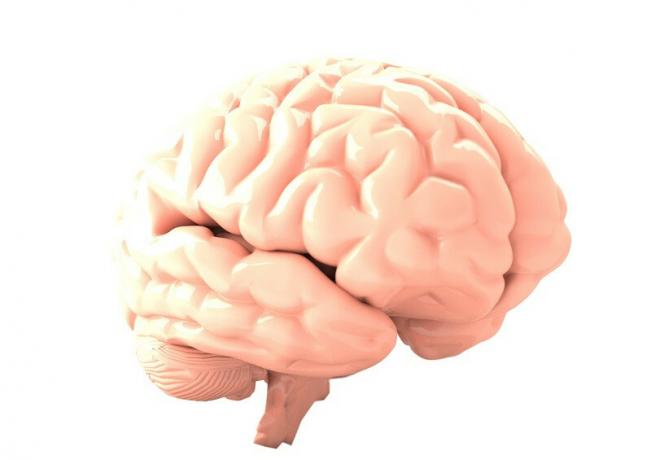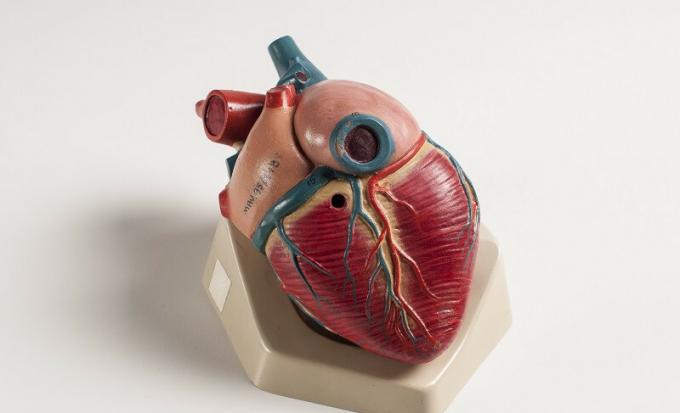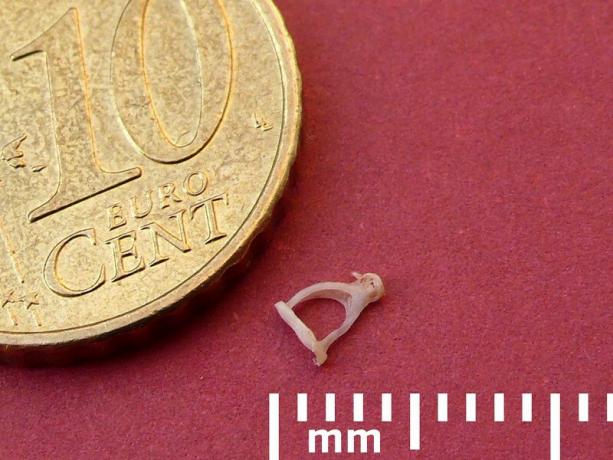50 questions about the human body (with their answers)
The human body is a complex structure made up of different organs, systems and different materials, which synchronizes and performs many functions to keep processes necessary to live running and to adapt to the environment. Therefore, it is not surprising that there are many sciences that study it directly or indirectly.
If you want to test your knowledge on this topic, keep reading; here we ask you several questions about the human body with their corresponding responses below.
- Related article: "The 24 branches of Medicine (and how they try to cure patients)"
Questions about the human body to test you (and their answers)
How much do you know about the human body? Given the complexity and all the components and functions that our body performs, there are many unknowns that have intrigued researchers and the general population for centuries. It is normal that doubts appear and you wonder how it can be possible that this "gear machine" works in a synchronized and autonomous way.
However, some of this knowledge has become part of popular culture and others still remain restricted to the realm of science. So here are some of the questions and curiosities related to the human body, which will surely help you and allow you to learn.
1. How many cells make up our body?
Although the number is not known exactly and can vary depending on whether we consider bacteria or not, it is estimated that we have approximately 30 to 40 trillion cells distributed throughout the body and with the ability to reproduce and create new ones.
2. How many lobes or part make up the human brain?
The human brain is made up of 4 lobes, which are duplicated, located in each Cerebral hemisphere.
These 4 lobes are called: frontal lobe, located as its name indicates in the frontal part, which is the one in charge mainly of movement and executive functions, it would be the one that directs the functions that differentiate us from the rest of the living beings; the temporal, located on the lower side, which is responsible for hearing or memory; the parietal, located on the upper side and would be linked to somatosensory perception, and the occipital, which is found in the caudal, rear part and is related to vision.

- You may be interested in: "Parts of the human brain (and functions)"
3. How many are there and what are the senses of the human body?
There are 5 senses that allow the human being to be connected and relate to the outside, these are sight, hearing, touch, smell and taste.
Despite being these 5 senses, the officials there are specialists who point out that there could be more if we consider the internal sensations of the body. In this way we can talk about thermoception that is responsible for detecting temperature, the related nociception with the perception of pain in the body itself or kinesthesia that would refer to the perception of movement own.
4. What is the longest organ in the human body?
The largest and heaviest visible organ of the human body is the skin, which in adults can measure two meters in length and weigh 5 kilos.
Although, as you may have noticed, we have made the note visible, since there are other interns such as the case of the intestine which, taking into account the large and the small, can reach 7.5 meters in length.
5. How many teeth do people have?
An adult with healthy teeth has 32 teeth, distributed between the upper and lower jaw. Although some may show 28, as wisdom teeth or better known as wisdom teeth, may not be present, because the subject does not have enough space for them to come out, because they have been removed or in some cases it has been seen that the individual no longer presents.
6. How many bones make up the human body?
It is curious that the number varies if we look at newborns or adults. We are born with approximately 300 bones and as we grow, these come together, fuse and become 206, which is the number of bones that we find in an adult human being.
- Related article: "Bone system: what is it, parts and characteristics"
7. What is the longest bone in the human body?
The longest bone in the human body is the femur; We find it in the leg and it goes from the hip to the knee.
8. What is the only organ that can regenerate itself?
The liver is the only organ that can regenerate on its own.
9. How many days can the human body go without eating?
It is calculated that on average people can go 40 days without eating, although in some cases it has even lasted 60 days. Even so, the exact days are impossible to know and depend and vary according to the person, what their state is physical, how old you are or if you do physical exercise or not, that is, if you consume energy, among others variables.
10. How many days can the human body go without drinking water?
On average, it is calculated that human beings can go from 3 to 5 days without drinking water, that is, much less than without eating, although they also influence personal and environmental variables, such as the weather, if it is hotter you will sweat more and lose more mineral salts, you will become dehydrated before.
- You may be interested in: "160 Trivia Questions (with the answers)"
11. What are the different flavors we have?
It is known that the human being can perceive 5 different flavors / tastes: sweet, salty, bitter, acid and umami.
12. How many blood groups are there?
Taking into account the classification A, 0 and B There are 4 blood groups, A, B, 0 and AB. Regardless of Rh, the Rhesus factor that can be positive or negative.
13. How many systems make up the human body?
The human body consists of 9 systems that are circulatory, locomotor, digestive, reproductive, respiratory, nervous, immune, excretory and endocrine.
14. How long can the human being be without breathing?
It is calculated that on average people can be between 2 to 3 minutes without breathing.
15. How many taste buds do humans have?
People we have about 10,000 taste buds that are regenerating, on average, every 2 weeks.
- You may be interested in: "Taste buds: types, characteristics and functioning"
16. What is the blood group considered universal donor?
The blood group considered universal donor, that is, one that can give to everyone regardless of which group they have, is negative 0.
17. How fast do nails grow?
It has been calculated that on average fingernails grow between 2.5 to 3.5 millimeters per month and toenails between 1 to 2 millimeters per month.
18. How long does it take for the human body to digest and excrete food?
It takes 6 to 8 hours for food to pass through the stomach and small intestine, about 36 hours to pass through the entire colon and is passed as stool after 2 to 5 days. Although this process will depend on different variables of the individual, for example their sex.
19. How many different colors can the human eye perceive?
It is estimated that the human eye can perceive around 1 million colors, different shades.
20. How much can the human ear hear?
The pitch of sound is measured in Hertz (Hz) in this way it is known that the sound perception range of humans is between 20 to 20,000 Hz, although it is more sensitive to the range 2,000 to 5,000 Hz.
21. How fast does hair grow?
Human hair grows approximately 0.3 to 0.4 millimeters a day, which would be one centimeter per month and can reach 15 centimeters in a year.
22. How fast does the heart beat?
The normal range of beats per minute in healthy adults is considered to be between 60 to 100.

23. What is the blood group considered universal receptor?
The blood group considered universal receptor and, therefore, can receive from all blood groups is positive AB.
24. How long can the human being endure without sleep?
The maximum time that a person has been without sleep has been 264 hours, which is equivalent to 11 days, although it is not necessary to wait so long to see the first symptoms, since when we have not slept for 24 hours, we observe that it begins to increase cortisol, which is the hormone, is related to stress and after 72 hours many of our functions are affected, affecting our health.
- Related article: "The 7 main sleep disorders"
25. What organelle is responsible for cellular respiration in the human body?
Mitochondria are what allow cells to breathe and those that produce much of the energy, ATP.
26. What is the type of nutrition of human cells called?
The nutrition of human cells is heterotrophic, which means that it is made from organic matter already formed.
27. How many chromosomes does a human have?
The human has 46 chromosomes which is the same as 23 pairs of chromosomes.
28. How many muscles has the human body?
The adult human body is considered to consist of more than 650 muscles.
- You may be interested in: "Muscular system: what is it, parts and functions"
29. How many neurons make up the human brain?
Neurons are a type of cell that make up the nervous system and whose main functions are to receive, process and transmit the information either to the brain or to the different organs or parts of the Body.
Specifically, it is believed that in the human brain the number of neurons could be close to eighty billion neurons, the number being even higher. synapseConnections that are formed between them, which are what allow them to perform their functions, since a neuron can interact with many other nerve cells at the same time.
30. What is the smallest bone that is part of the human body?
The smallest bone is the stapes, which is one of the three bones that make up the chain of ossicles of the middle ear; it is located in the eardrum and is only 2.5 to 3 millimeters long.

31. How much does the human heart weigh?
The human heart weighs between 300 to 500 grams, athletes are the ones who tend to have the highest weights.
32. How long does it take for permanent teeth to come out?
The permanent teeth take on average about 3 months to come out.
33. Which muscle is the longest?
The longest muscle in the human body is the sartorius, which goes from the pelvis to the lower part of the knee.
34. How fast do neurons regenerate?
It is estimated that 1,400 neurons regenerate in approximately one day.
35. Are two fingerprints the same?
The answer is no, there are no two identical fingerprints, and even homozygous, identical twins, do not have the same.
36. How many joints does the human body have?
The body of an adult person is made up of 230 joints.
37. How many hair do we have?
On average, people have between 100,000 and 150,000 hairs, although this amount will vary depending on the person, for example, according to their genetics, the color of their hair or how they take care of it.
38. How many layers does human skin have?
Human skin is made up of 3 main layers: the epidermis, the dermis, and the subcutis or subcutaneous tissue.
39. How many vocal cords do we have?
Human beings have 4 vocal cords, two considered true and two false.
40. What is the capacity of the human bladder?
The human bladder has a maximum capacity of approximately 600 milliliters.
41. What percentage of water is in people's bodies?
The human body is made up of 60% water.
42. How many tabs do we have?
The amount will vary depending on whether it is the lower or upper eyelid, in the lower one we have between 70 and 80 tabs and in the upper one between 100 and 150 tabs.
- Related article: "The 11 parts of the eye and their functions"
43. How many hair do we lose in a day?
In a day we can fall between 50 to 100 hairs, which can also vary according to the season of the year, more will fall during spring and autumn.
44 How many salivary glands do people have?
We have 3 large salivary glands which are the parotid, the submandibular and the sublingual. Although we have many more, even hundreds, of smaller salivary glands.
45. How many times do we blink per minute?
An adult individual blinks an average of 20 times per minute, although as conditions change this number can vary, for example, if we read this it can decrease between 12 to 16 per minute even between 3 and 4 if the view is static.
46. Which bone in the human body is the hardest?
The strongest bone in humans is the femur, located in the leg, which must support a large part of the body's weight.
47. How tall and heavy is the human brain?
The adult human brain measures approximately 1,100 / 1,300 cubic centimeters and weighs 1,500 grams.. These measurements may seem a small thing, but in a brain / body ratio, the human being is the living being that shows the largest brain size.
48. How many liters of blood do we have?
An adult person has between 4.5 to 6 liters of blood in the body, although as expected it will vary according to variables such as age, sex, weight or height.
49. What are teeth made of?
All teeth are made up of three hard tissues that are enamel, dentin and cementum, and a soft tissue that is the dental pulp.
50. How many facial muscles do we use to smile?
To smile, with a true smile, we use 12 facial muscles.

